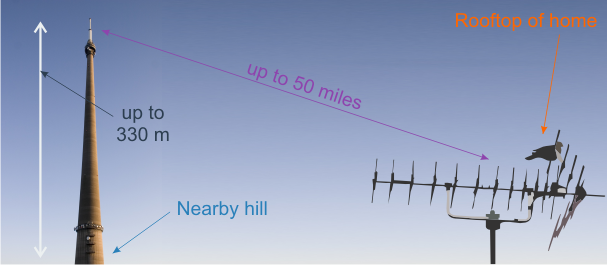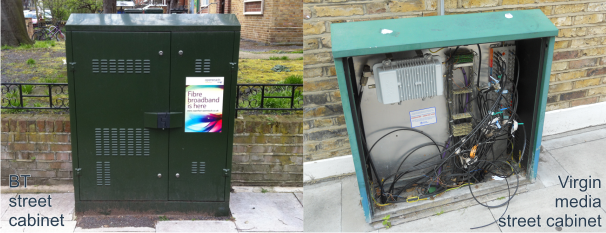Which free digital TV system will give me the most reliable reception?

How time flies! It was 12 years ago this week that Sky closed their analogue TV service, and it was five years ago that "digital switchover" started. It can be quite hard to remember the imperfections of analogue reception, as everyone now has crystal-clear digital TV.
All transmission systems (analogue or digital) have to deal with the real world. This means a range of weather and atmospheric conditions can cause reception problems. What can you do about it?
However, the binary "bits" that are translated into the moving pictures, stereo sound, on-screen TV listings, subtitles and interactive text services have to get themselves from the broadcaster to your TV set, still have to be transferred along the same airwaves as the old analogue services.
On feature of "digital television" is that is digital in both the sense of "being provided by computer technology" and "it works, or it doesn't".
There are four ways you can get digital TV into your home:

1. Using "Freeview", which is the name for the service that provides channels from tall transmitters based around the country. This system is often called "terrestrial" (relating to the earth) because the TV signals stay close to the ground. Almost every home in the UK has a rooftop aerial which picks up the signals and sends them down to the TV sets around the house.

2. Using satellites, which you will know by the names "Sky" or "Freesat". It is hard to fathom sometimes that the satellites are up in space, 22,236 miles above Africa in the Maiko National Park, Congo (not far from Rwanda). Satellite reception is no harder to set up than using an aerial, all you need is a small compact black disk mounted on a south-facing wall. 
3. Cable TV, which is known as "Virgin Media" in the UK, offers an alternative reception system. The cable company provides a wire into your home that provides a range of services. This is connected to a box in the street, which connects onto what is called a "head end" in your town or city: a room full of equipment where the TV channels are provided and encoded.
4. You may know Internet TV as "BT Vision" or "TalkTalk TV", or you might use BBC iPlayer, or Sky Now. To watch TV this way, your equipment connects to the internet using whatever method is to hand: ADSL (sharing a phone line), wireless, mobile or cable-provided.
Part two tomorrow: how they work - most of the time.
12:45 AM
K Brady:
So sorry to hear of your reception problems, but there is Planned Engineering work taking place at the transmitter which can affect your reception BUT in addition to which it could well be current weather conditions affecting you, It's not bad design or just sunny weather or just high pressure, I'm afraid that is not a complete "picture" (sorry pun not intended).
Sometimes these conditions can cause Tropospheric Ducting which is currently affecting much of the south coast and southern parts of the country on Saturday and now extending into the Midlands and North of the country through Sunday including East Anglia. This causes interfering signals from distant transmitters in Europe or the UK to affect reception of your wanted signals. This can periodically last, seconds, minutes and sometimes much longer - Do NOT Retune.
There is nothing you can do about this apart from wait for conditions to change, or use online streaming if available.
IF you did retune, you be best manually retuning the UHF channels for your transmitter.
The BBC have issued warnings -
High pressure weather conditions impacting TV & Radio services - 6th October | Help receiving TV and radio
| link to this comment |
